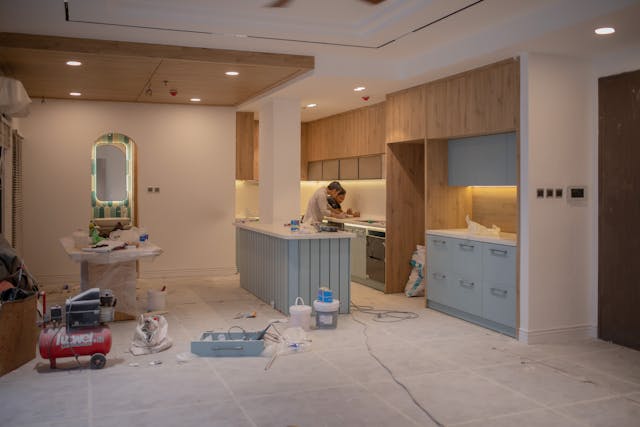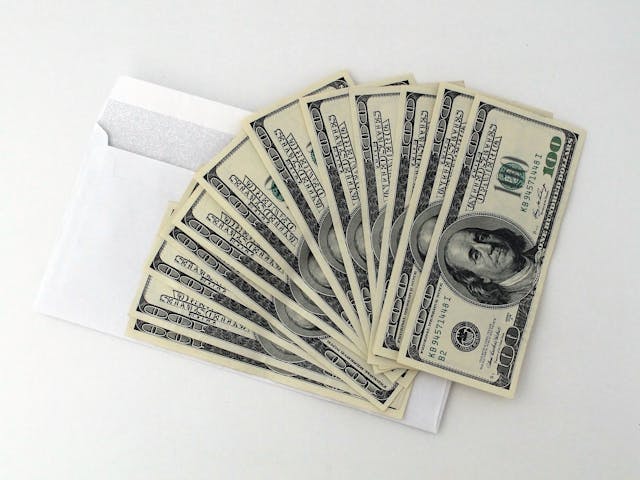Understanding Cash Flow: How to Keep Your Rental Business Profitable
Key Takeaways
- Know Your Numbers – Tracking income, expenses, and true cash flow is essential to understanding your rental's profitability.
- Monitor Key Metrics – Keep an eye on NOI, CapEx, vacancy rates, and reserve funds to stay ahead of financial issues.
- Get Expert Support – Partnering with Redsail Property Management gives you clarity, stability, and smarter financial planning.
Are you finding it harder than expected to track whether your rental properties are actually making money each month? Many rental property owners overlook the importance of consistent, positive cash flow, which can quietly chip away at profits even when units are fully occupied.
Understanding how money moves in and out of your rentals is key to running a stable, long-term investment. Without a firm grasp on cash flow, it’s easy to miss hidden expenses or rely on guesswork when making financial decisions.
At Redsail Property Management, we work with investors throughout Hampton Roads to help them gain clarity and confidence in their numbers.
Let’s break down what cash flow really means and how to keep it working in your favor.
Learn how we can help you maximize your home’s potential.
8 Essentials for Smarter Cash Flow
Understanding what drives your rental income and expenses is key to keeping your business profitable. Here are eight essential elements every Hampton Roads landlord should monitor consistently:
Gross Rental Income
Gross rental income is the total income you collect from your rental property before any expenses are taken out. This includes monthly rent payments, pet fees, late fees, and other charges like laundry or parking. For Hampton Roads landlords, this figure helps you understand your property's full earning potential each month.
Knowing exactly what your income streams are, and making sure all charges are collected consistently, gives you a strong starting point when evaluating cash flow.
Tracking this income accurately allows you to spot shortfalls early and make informed decisions about rent adjustments or added services.

Operating Expenses
Operating expenses are the everyday costs you incur to keep your rental property functional and safe. These include maintenance, minor repairs, lawn care, insurance, property taxes, and utilities if you're covering them. In Hampton Roads, property owners may also need to budget for pest control or seasonal upkeep like storm prep.
These costs should be recorded monthly so you're not caught off guard. By keeping detailed records and reviewing them regularly, you’ll spot patterns that can help you plan ahead or find areas where you can reduce expenses without compromising service quality.
Net Operating Income (NOI)
Net Operating Income, or NOI, gives you a clearer picture of your property's profitability before accounting for mortgage payments or financing.
The formula is simple: Gross Rental Income – Operating Expenses = NOI. For landlords in Hampton Roads, calculating NOI can help you compare different properties, assess performance over time, and guide investment decisions.
If your NOI is consistently low, it’s a sign to revisit your pricing, expenses, or resident retention strategies. This number is key when evaluating how well your rental is performing and whether it’s contributing positively to your overall portfolio.
Capital Expenditures (CapEx)
Capital expenditures are the larger, less frequent expenses that keep your property in good shape long term. These include roof replacements, new HVAC systems, water heater upgrades, and exterior repainting. While they don’t occur monthly, failing to budget for them can lead to cash flow issues down the line.

In Hampton Roads, weather-related wear and tear may speed up the need for certain upgrades. Landlords who plan for CapEx ahead of time avoid financial stress and protect their property value. It’s smart to set aside a portion of your income each month so you’re ready when big-ticket repairs come up.
Debt Service
Debt service refers to the monthly payments you make toward any mortgage or financing tied to your rental property. This includes both principal and interest.
If you’re a Hampton Roads landlord with a loan on your property, this will be one of your most significant ongoing expenses.
Understanding your debt service helps you calculate your true cash flow, since it directly affects how much profit you retain after other costs. Always make sure your rental income can comfortably cover this amount so you're not operating at a loss or dipping into reserves.
Vacancy Rate
The vacancy rate measures how often your property sits unoccupied and not generating income. It’s usually expressed as a percentage over a year. For example, if your unit is vacant for one month, your annual vacancy rate is roughly 8.3%.
In the Hampton Roads area, seasonal demand or local job markets can affect how quickly units are filled.
Monitoring this rate helps you identify if your pricing, marketing, or resident retention strategies need improvement. High vacancy rates hurt cash flow, so maintaining strong leasing practices is key to keeping your income steady throughout the year.
Reserve Funds
Reserve funds are savings set aside specifically for emergencies or unexpected repairs. Think of it as a safety cushion.

If your HVAC fails during peak summer or a water line bursts, these funds let you handle the issue without disrupting your monthly cash flow. Hampton Roads landlords should plan reserves with regional weather and property age in mind.
A good rule of thumb is to set aside a percentage of your rental income each month. Building up your reserves protects you from financial surprises and ensures your residents continue receiving prompt, quality service.
Cash Flow
Cash flow is the final profit you keep after covering all expenses, including operating costs, debt service, and reserves.
The formula is: Net Operating Income – Debt Service – Reserve Contributions = Cash Flow. For Hampton Roads property owners, positive cash flow means your property is financially healthy and supports your long-term goals.
It’s important to review this number regularly to ensure your business remains sustainable. If cash flow dips, you can explore ways to reduce costs or increase income. Reliable cash flow gives you flexibility, peace of mind, and the ability to grow your investment portfolio confidently.
Bottom Line: Keep the Cash Flowing Smoothly
Managing your rental’s cash flow doesn’t have to feel overwhelming when you have the right guidance. For investors in Hampton Roads, Redsail Property Management is here to help you make sense of the numbers, plan ahead, and keep your rental business profitable.
Whether you’re unsure about reserves, need help lowering vacancy rates, or just want a second set of eyes on your property’s performance, our team is ready to walk you through what’s best for your goals. Reach out today to explore your options.